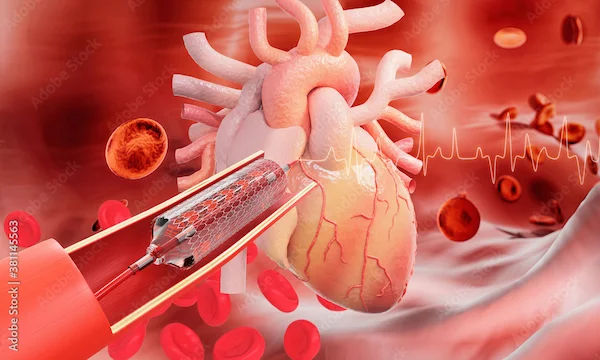- female
- 60 Years
- 31/03/2021
What is a heart cough?
Answered by 1 Apollo Doctors
Heavy breathing accompanied by spells of wet cough with frothy sputum that may be tinged with blood is called as "Cardiac cough or Heart cough". It is a sign of congestive heart failure. Additional symptoms such as shortness of breath on exertion or rest, leg swelling, waking up from sleep in the middle of night gasping and coughing differentiate heart cough from cough due to lung conditions.
Dr. Dr Khaleel Suggests...
Consult a Cardiologist
Answered 04/07/2025
0
0

More Cardiology Health Queries
View allMy dad has artery blockages and we're really confused between angioplasty and bypass surgery - which one would be better for his condition? The doctors gave us both options but we're not sure what to go with
Choice depends on blockage location and risk factors; angioplasty is less invasive, but bypass is better for multiple or complex blocks.
Answered by 1 Apollo Doctors
I'm dealing with high BP and hypertension for the past 1.5 years, and it's something my parents deal with too. I've been taking Telma 40 and Amlodac, and also Rosuvas. With my sedentary lifestyle and night shifts, I really want to know how I can eventually stop taking these medications. I dont want to rely on drugs forever. Can you provide some advice?
It's important to manage your high blood pressure and hypertension effectively to reduce the risk of complications. Since you have a family history of these conditions, lifestyle modifications are crucial. Here are some recommendations to help you reduce your dependence on medications: 1. **Regular Exercise:** Aim for at least 30 minutes of moderate-intensity exercise most days of the week. This can help lower your blood pressure and improve overall cardiovascular health. 2. **Healthy Diet:** Follow a diet rich in fruits, vegetables, whole grains, and lean proteins. Limit your intake of saturated fats, cholesterol, and sodium. 3. **Weight Management:** If you are overweight, losing even a small amount of weight can help lower your blood pressure. 4. **Stress Management:** Practice stress-reducing techniques such as meditation, deep breathing exercises, or yoga to help lower your blood pressure. 5. **Limit Alcohol and Caffeine:** Excessive alcohol and caffeine consumption can raise blood pressure. Limit your intake of these substances. 6. **Quit Smoking:** If you smoke, quitting can help lower your blood pressure and improve your overall health. 7. **Regular Monitoring:** Keep track of your blood pressure at home and follow up with your healthcare provider regularly to monitor your progress. While making these lifestyle changes, continue taking your medications as prescribed. It's important to work with your healthcare provider to gradually reduce your medication dosage under their supervision. They will be able to assess your progress and make appropriate adjustments to your treatment plan.
Answered by 1 Apollo Doctors
I've been noticing for the past 4 years that my heart occasionally skips a beat or flutters, but it's been happening much more frequently lately. It gets me really anxious each time, even though I dont have any other symptoms apart from the anxiety. Can you guide me on what might be going on?
Visit your Physician for appropriate management
Answered by 1 Apollo Doctors
Disclaimer: Answers on Apollo 247 are not intended to replace your doctor advice. Always seek help of a professional doctor in case of an medical emergency or ailment.





